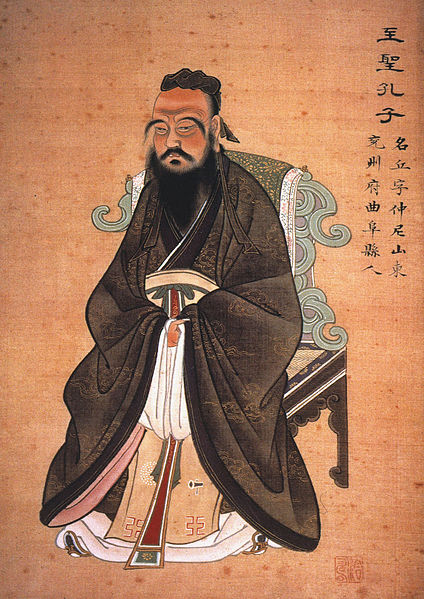Confucianism

Credit: Encyclopedia Britannica
| Giver: | Individual |
|---|---|
| Receiver: | - |
| Gift: | Other |
| Approach: | Other |
| Issues: | 10. Reduced Inequalities |
| Included in: | Kindness and Generosity, Religious Giving |
Confucianism is a Chinese school of thought rooted in principles of social order, ethical conduct and education. Based on the teachings of the philosopher Confucius (551-479 BCE), Confucianism views moral behavior as the foundation of a prosperous society. The practice of giving, or shi, holds a prominent place within this worldview, both as an act that provides a direct benefit to others, and as a manifestation of yi, or righteousness.
Although Confucius never put his teachings into writing, his followers collected his ideas in the Analects, a collection of sayings compiled and recorded between 475 and 220 BCE. The second master of Confucianism, Mencius (372-289 BCE), elucidated these teachings further in a book typically referred to as the Mencius. Taken together, these works contain the core tenets of Confucian philosophy.
In Confucianism, morality originates in heaven, and appears on earth as both a gift and an obligation. A righteous individual should simultaneously feel gratitude for the abundance of the world, and a sense of duty toward maintaining and nurturing this abundance. For this reason, Confucianism places a high moral value on the ethical treatment of all creatures, including animals. Over time, this concept of generosity has applied more broadly to ecological and environmental issues.
The Confucian tradition of generosity derives from three ethical concepts. Ren, or benevolence, guides how individuals should regard one another. The concept of ren finds a parallel in the ancient Greek notion of philanthrôpia, a term meaning “love of humankind.” The second concept, yi (righteousness), refers to actions that naturally arise from the proper observance of ren. By adhering to ideals of ren and yi, human beings uphold the moral order.
The third concept, shi (giving), derives from ren and yi. That is, generosity is made possible by embodying a benevolent spirit while performing righteous actions. Through giving, followers of the Confucian tradition demonstrate compassion toward their fellow human beings. Further, acts of giving cultivate mutual kindness, strengthening social bonds while reinforcing the moral order. This aspect of generosity finds its expression in a fourth ethical concept, shu (reciprocity).
The intention behind an act of giving has particular significance in Confucianism. A small gift presented selflessly and with humility has greater moral value than a larger gift bestowed in a proud or ostentatious manner. Because living in a righteous manner represents its own reward, Confucianism stresses giving for its own sake, without the expectation of receiving anything in return.
Education represents one of the most vital channels for generosity in the Confucian tradition. Because knowledge and wisdom are critical to preserving the moral order, empowering another individual through education is one of the most valuable gifts a person can provide. This principle of universal education remains a cornerstone of Chinese culture today.
Confucianism continues to inform ethical behavior in the 21st century. With its emphasis on a shared moral obligation among members of a society, the tradition offers a relevant philosophical framework for giving in the modern age.
Contributors: Maha Tazi, Stephen Meyer
| Source type | Full citation | Link (DOI or URL) |
|---|---|---|
| Publication |
Cai, Zong-qi. “In Quest of Harmony: Plato and Confucius on Poetry”. Philosophy East and West. 49, no. 3 (1999): 317–345 |
https://doi.org/10.2307/1399898 |
| Publication |
Danton, George. “Schiller and Confucius”. The German Quarterly. 16 no. 4 (1943): 173–182 |
- |
| Book |
Dobson, W. A. C. H . Mencius, A New Translation Arranged and Annotated for the General Reader. London: Oxford University Press, 1963 |
- |
| Publication |
Dubs, Homer H. . “The political career of Confucius”. Journal of the American Oriental Society. 66 no. 4 (1946): 273–282 |
- |
| Book |
Eno, Robert. The Confucian Creation of Heaven: Philosophy and the Defense of Ritual Mastery. State University of New York Press, 1989 |
- |
| Book |
Hall, David L. and Roger T. Ames. Thinking through Confucius. State University of New York Press, 1987 |
- |
| Book |
Huang, Yong. Confucius: A Guide for the Perplexed. A&C Black, 2013 |
- |
| Book |
Legge, James. The Works of Mencius. The Chinese Classics. Clarendon Press, 1895 |
- |
| Publication |
Pan-chiu, Lai; Lee, Peter. “Traditions of giving in Confucianism”. AllianceMagazine, 2002 |
- |
| Publication |
Schiller, Friedrich. “Proverbs of Confucius”. The Open Court. 1905 no. 5 (2010): 11-18 |
- |
| Book |
Shun, Kwong-Loi. Mencius and Early Chinese Thought. Stanford University Press, 1997 |
- |
| Book |
Ware, James R. The Sayings of Mencius. Mentor Books, 1960 |
- |
| Book |
Wilson, Thomas A. On Sacred Grounds: Culture, Society, Politics, and the Formation of the Cult of Confucius, 69-315. Harvard University Asia Center, 2002 |
- |